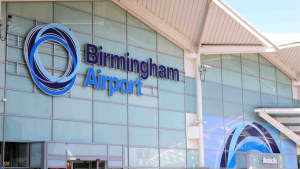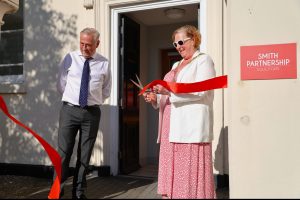Budget 2010: Business leaders deliver their verdict

Business leaders in Birmingham have delivered their verdict on Alistair Darling’s last Budget before the General Election.
Most agreed it was neutral and the real picture would only emerge after the election.
Mark Smith, regional chairman at PricewaterhouseCoopers in the Midlands, said the Budget projected a slightly improved outlook for public borrowing.
However, analysis by its economists suggested that additional tax rises or spending cuts building up to around £30bn per annum by 2015/16, over and above Budget plans, could still be needed to eliminate the structural current budget deficit by that date.
He said the Treasury did not make large changes to its Pre-Budget Report (PBR) forecasts for growth and the Budget overall appeared to be broadly fiscally neutral.
“Our projections are based on a more cautious view of medium-term growth potential than that of the Treasury,” he said.
“On this basis, we see public sector net borrowing remaining at just under 5% of GDP in 2014/15, as compared to the latest Treasury forecast of a 4% of GDP budget deficit in that year.
“Public borrowing in the medium term could therefore exceed the levels projected by the Treasury meaning that, with public debt heading to around 77% of GDP in 2014/15 on our projections, there could eventually be an adverse bond market reaction that would significantly push up the cost of servicing this rising debt.”
Steve Hollis, senior partner at KPMG in Birmingham, said: “The bottom line is that the crisis is thought to have permanently shrunk the economy by 5%.
“On average we will all be correspondingly worse off – the question now is how the pain will be distributed.”
He said the Chancellor stuck to his plan to halve the deficit by 2013-14 with a combination of tax rises and spending cuts starting in earnest next year – unchanged from December’s PBR and last year’s Budget. But familiarity should not breed contempt.
“This would still be the biggest squeeze since the 1970s. And that still leaves the other half for the Parliament after next,” he added.
Chris Sharpley, Midlands head of tax at Ernst & Young, said: “The Chancellor has preserved the option of leaving good news for Labour’s General Election manifesto, which increases the chance of a further Budget after the election, even if Labour were to be re-elected.”
He said VAT had as expected, remained unchanged at 17.5%, even though some had been speculating it would rise to 20%.
On the decision to raise the stamp duty threshold to £250,000, he said: “The Budget documentation confirms that this will apply only to residential property and that the new 5% rate will only come into force in 2011.
“This is likely to encourage sales before the implementation date, giving a boost to the top end of the housing market and potentially providing a welcome short term boost to exchequer revenues.”
He said the change retained the ‘slab’ system, meaning that the regime distorts sales at £250,000, £500,000 and now at £1m.
“There appears little logic for increasing stamp duty by £10,000 for a £1 increase in price from £999,999,” he added.
Ian Stringer, regional senior director at GVA Grimley, said the region should capitalise on the announcement that 15,000 civil servants were to be shipped out of London.
“This represents a real opportunity for Birmingham which, I would argue, is better placed strategically than any other UK city to meet the decision criteria.
“The city has been collectively working hard to improve its appeal which has come to fruition with a recent run of announcements; including being on the first line for the new High Speed Rail Link, the extension of The Metro and expansion of Birmingham International Airport.”
Other weapons in the city’s arsenal included a healthy supply of high quality, efficient and sustainable buildings, a number of which are BREEAM Excellent, he added.
Rob Gunn, tax director at RSM Tenon in Birmingham, said the Budget had been generally bland but with some good news for entrepreneurs.
He said: “The Budget speech was light on content so we will only see the full extent once we have completed our detailed analysis.
“The Government’s overriding priority is to get cash into its bank account – in that respect it is no different to the rest of us. So Alistair Darling has sent out some very strong signals to those who deliberately fiddle their taxes or engage in aggressive avoidance: life for them is going to get much tougher.”
Jordan Watson, tax associate at law firm DLA Piper in Birmingham, said: “A lot of corporate deals have been lined up and are ready to go, but there were concerns that Capital Gains Tax would go up from 18%. This was a good Budget for companies and entrepreneurs.”
Simon Robinson, vice-chairman of the Investment Property Forum in Birmingham, said: “We are disappointed that the Chancellor has not made any announcement on changing his policy on empty rates which is effectively a tax on recession.
“However, it is good that the regional economy looks set to benefit with the announcement that 15,000 Civil Service jobs are to be relocated from London, and hopefully Birmingham can take full advantage of this opportunity.”
Janet Pilborough-Skinner, a director at accountancy firm Mazars said: “The Chancellor caused some hilarity with his mention of targeting tax avoidance in Belize, but this belies the full import of anti avoidance measures which have been announced.
“The devil is in the detail, but measures have been announced to further curtail the use of trusts and other vehicles to reward employees, further measures to limit the use of offshore structures and targeting schemes to avoid the impact of the 50% tax rate.
“HMRC are continuing their drive to raise tax from those seeking to avoid tax. The danger is that those who have forgotten to declare their income could suffer severe penalties, making professional advice and assistance all the more important.”
Richard Rose, tax partner, BDO, said: “It is very disappointing that the Chancellor has missed an opportunity to announce a phased reduction in the level of corporation tax from its current level of 28%, which is increasingly uncompetitive compared to many of our key competitors for global business investment including, for example, Germany, Ireland and Central Europe.
“Indeed, it is regrettable that he sought to make this a party political issue by contrasting his policy with that of the Conservative opposition.
“Whilst the increase in the Annual Investment Allowance on capital expenditure for small businesses’ will be a modest boost for a number of smaller businesses, this is no substitute for much needed reform to the overly complex and onerous corporation tax system.”
To put this measure in context, he said it would cost the Exchequer no more than £120m each year which amounted to little more than a rounding error in the overall Budget picture.
“As expected, there are also complex new anti-avoidance rules to restrict the use of this relief which appear heavy handed for an additional relief worth no more than £14,000 in tax terms,” he added.
Sarah Moss, a director at PKF in Birmingham, said: “The increase in the nil-rate band of stamp duty to £250,000 for first time buyers may be a bit of political ‘magic trick’, but this rabbit from the hat is going to help get the property market moving again.
“Add in the prospect that interest rates are likely to stay low for a long time and that the banks are being encouraged to increase lending to home buyers, and you have quite a favourable climate for a recovery in the residential property market.”
Pam Waddell, director of Birmingham Science City, said she was pleased with the pledged investment in science and research, however the devil remained in the detail and it would be interesting to see the full scope of these proposals.
“With a report from the Sector Skills Council for Science, Engineering and Manufacturing Technologies (Semta) stating that the economy requires almost 30,000 highly skilled scientists and engineers every year over the next seven years, this investment is even more important.
“For the UK to succeed as a ‘knowledge economy’ and compete on the world stage, we need long-term, sustainable investment into research and development.”









